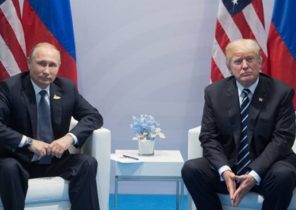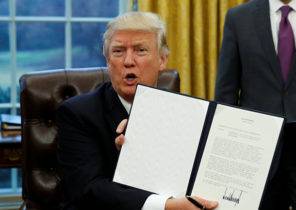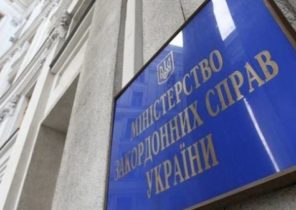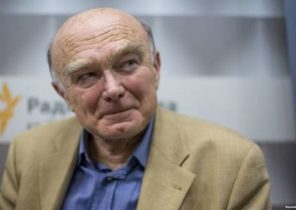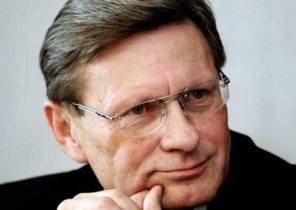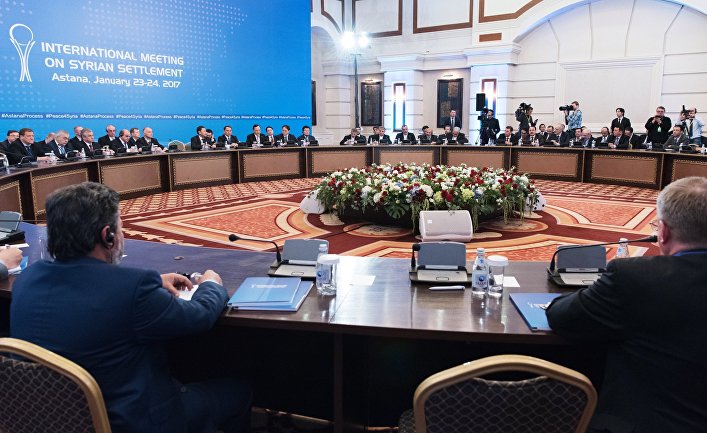
The efforts of Russia on the Syrian settlement in the tripartite dialogue enter a new stage. After Russia’s attempts to give priority in the negotiations on the Syrian crisis dialogue with the United States failed, it seems that Russia is beginning to shift to negotiations with Turkey, also simultaneously involving dialogue and Iran. As it seems, in the current circumstances, the Russian side seeks to make progress on the settlement as soon as possible. And this begs the question — on a tripartite negotiation process involving Russia, Turkey and Iran, which participant the Russian side is inclined to give priority? We have tried to answer this question with the help of our expert — senior researcher of the Department of Russian studies at the Institute for the study of Iran and Eurasia (IRAS), a member of the scientific Council of the Institute, Dr. Mahmud Shuri.
— Although it appears that the current Russian-Turkish-Iranian talks had originally a trilateral format, the subsequent course of the negotiation process showed that in fact these negotiations is still more bilateral. That is, the negotiations, primarily between Russia and Turkey, and they can do their job without the participation and opinions of the Iranian side. And initially it seemed that the Russian, although he had closely cooperation with Iran in planning counter-terrorism operations, in the negotiation process do not attach so much importance to the role and position of the Iranian side. What is Your opinion regarding this problem?
In any case, it is only natural that Russia is positioning itself as the main driving force in these negotiations. Because, as she imagines, in her hands as member States of the UN security Council, significantly more possibilities, and mechanisms of international negotiations. If you look at the nature of the relations which Russia has with all parties in the Syrian conflict, it is thanks to them that Moscow in the negotiation process will have a significantly greater impact, and it will be able to negotiate directly with them. Of course, that Iran is not ready to speak on these negotiations in such as. Iran may negotiate with America and also unable to communicate directly with representatives of the Syrian opposition, as well as with countries such as Saudi Arabia. Therefore, the only option Iran has is, under certain conditions, to negotiate with Turkey. In line with this, the Russians acknowledge the right to speak in these talks on the first cast. The role that they assign to Iran — this cooperation in a practical and operational level. In their view, Iran has a number of features and capacities for this purpose, that is, for purely technical cooperation or planning of combat operations.
That is, at the moment when it was necessary to develop a combat strategy to counter terrorism, the first partner of Russia in the negotiations was Iran. But now, when the Syrian crisis is gradually transformed into a new phase, and has already begun a purely political process, it is natural that Russia is trying to make maximum use of their superiority, which it initially has the negotiating table. Since that moment as has begun to discuss the topic of cooperation in the negotiations, namely Russia and Turkey, there were a number of questions as to what role and what is the scope envisaged for Russia for Iran, though the type and manner of cooperation that have begun to emerge between Turkey and Russia. Probably, in fact Russia itself is not really interested in discussing the role of Iran in the beginning of the political process. Much more her concern to most effectively speak on behalf of the front of supporters of the Assad government. Just as earlier, the US was trying to act effectively in the negotiations on behalf of the opposition, yet this role is gradually beginning to move to Turkey. At the moment the US for obvious reasons, at some point distanced from the negotiation process, and in their place came Turkey. On the other hand, it appears that Turkey is capable of these negotiations, to act more flexibly than the United States, and, from a practical point of view, it may be the force that has great influence. And the Russians tend to use these possibilities.
Russia is using the situation that has developed after the normalization of relations with Turkey, trying to direct the General course of the negotiations in the direction desired for themselves. I think the concern that now arises in this regard, the Iranian side is quite clear. Iran, while the military phase of the conflict has mobilized all its capacities to cooperate in operational matters. And now, when comes the phase of political settlement, he does not want to lose what has been achieved with such difficulty, when he had to operate “in combat”. But on the other hand, again, it turns out that on some issues, settlement considerations and issues that are significant for the Russian side, coincide with those of Iran, but for many positions they are likely to differ. Just as well, probably different Russian and Iranian views on the current Syrian issue and the opinion of the parties on the political future of Syria. It is therefore natural that these differences are likely to affect the nature of negotiations.
This issue is discussed in this part of our conversation, this is Russian-Turkish relations and regional cooperation, to discussion of peculiarities of the Russian-Iranian dialogue and problems of Russian-Iranian cooperation on Syria, we will definitely return during our next meeting. As it seems, the processes that we can observe now in the bilateral relationship and regional cooperation between Moscow and Ankara doesn’t seem logical. Initially, dynamically developing bilateral relations suddenly interrupted by a well-known incident, get the tensions, the cooperation stops, but then again they “suddenly” revived and again we see the cooperation, and it develops too rapidly. And then, the same Russia that recently, up until very recently, has accused Turkey of supporting terrorism in Syria, now suddenly chooses Turkey as an alternative is “temporarily retired” US.
And do You think that for some specific reason Russia turned to Turkey? Upon this reversal of the desired goals? Whether this cooperation is to produce results and objectives sought by the Russian side?
— Russia has in Syria a number of goals and interests, which determine the priorities of Moscow in its policies. But how and in what form Russia will achieve these goals and how to ensure their own interests is the second most important issue. A time when Russia is actively “involved” in the Syrian crisis, its position and interests in the region were under threat. And certainly, if Russia is not “involved” then, now she actually almost did not play any role in the Syrian settlement and is not acquired to the same position, which has now. Based on this, with whom, and in what form of cooperation — for the Russian is a secondary question. Therefore, if they could secure their interests by cooperating with America, they certainly would act this way. If they could achieve their goals and solve their problems with Iran, it would choose a partner of Iran. And if they can now solve their problems with Turkey, they will proceed in this vein. And this in itself can not be put into a reproach, like any other country that would be in their place.
It will be absolutely any country. In particular, such a large power as Russia, which has a “broad scope” in the global arena and at the regional level. But if we talk specifically about Turkey, Russia resorted to dialogue with her special need. After the crisis in Ukraine and the sanctions that were imposed against Russia, the Russians pursued the goal to eliminate the economic pressure under which they found themselves, intensifying cooperation with Turkey in the trade-economic sphere and developing with the Turks joint ambitious projects in the energy sector. And thus, through economic cooperation with Turkey, they tried to solve their own problems and to satisfy their own needs in the sphere of economy. And at the same time, to diversify their “energy routes” in the Western direction, not to be in a difficult position as a result of possible pressure from the Western States. For this reason, until the incident with the Russian plane, the Russian-Turkish relations have developed very positively. And they were high not only from the standpoint of pure economic and political interaction. But in any case, the incident with the plane was a real shock, from which the Russian was very difficult to recover: they had no idea what could have such a problem with Turkey, the country with which they have developed such a positive relationship, in both economic and political.
At the same time, many assumed that this conflict can be solved very quickly, because both sides, Russia and Turkey need each other. And we saw the aftermath of the incident, with Turkey eventually followed by an apology, and this apology was made very quickly. And again Russian-Turkish relations rather quickly go to the previous level as expected and that and the other party. But in connection with the Syrian issue, the rapprochement between Russia and Turkey it on the Syrian settlement would be very difficult to expect, if it had not been a number of developments within Turkey and Syria. Anyway, in the end, conditions are favourable to both Russia and Turkey for talks on Syria were at the same table. An unsuccessful coup attempt in Turkey and what happened then, and the defeat of the opponents of Assad in Aleppo, became one of the reasons that Turkey had to revise its policy towards Syria. This revision was the cause of what later became possible cooperation with Russia on the Syrian political settlement. It seems to me that both Russia and Turkey are now in such circumstances that, when you come out in your interactions on a certain level, they will find it possible to go for a division of spheres of influence in Syria. In fact, we can already observe such a section is seen from the behavior of both countries. In the town of al-Bab, the Russians acted as are usually at the air strikes of the Turkish air force. That is, both sides have now come to the understanding that the continuation of the Syrian crisis will be created for each of the two parties increasingly difficult. The Russians then do not want to take over the Syrian settlement costs alone, do not want to have neither political nor economic, and purely military costs. And the Turks also see that the continuation of the civil conflict in Syria is causing them greater harm. Here both sides and came to the conclusion that they need interaction with each other, to also share spheres of influence and interests. But this raises two big questions for us. The first question is if such separation of concerns, how would Iran, or, possibly Iran ignored at all. And second — whether to keep this atmosphere of cooperation between the parties, and if so, how long it will last?
Regarding the first problem, we can say that Iran, due to the fact that he had bilateral cooperation with Russia in military-operational terms, has managed to enter into the negotiation process, which began between Russia and Turkey. We thus see that, at least formally, did the group settlement of the three parties, Russia, Turkey and Iran, which already held a meeting in Moscow. And still it seems that all three parties are trying, in the course of negotiations, agree on the political future of Syria. But of course, that all three parties are not in the negotiation process, equal opportunities, and not all show the same flexibility and propensity to interact. The possibility of the Iranian side in the course of this negotiating process are limited, and this fact gives us here a number of difficulties.
We from the beginning were solid supporters of the preservation and consolidation of the regime of Bashar Assad in Syria. And it’s our goal to some extent realized, but in any case, the political future of Syria Assad continues, I think, remain unclear. There’s no answer to the question how far we can move forward in the negotiations with the Russian and Turkish sides regarding the political future of the Assad regime, and when we can come to an agreed solution. And this fact creates certain difficulties in our negotiations. But the Russian and Turkish sides have much to give each other to come to a solution that satisfies both. Russian may assume, to some extent, the protection of Turkish interests. And the Turks also can guarantee the interests of Russia. And because of this problem, it turns out that all three parties engage in these negotiations as if in not quite equal. As for the future of Russian-Turkish cooperation, and the degree to which it can reach, there is need to pay attention to the following. Though both sides have shown enough political will to work together, interact on this issue, and finally, to find a way to solve the Syrian problem is impossible, I think, to be completely sure that this atmosphere of cooperation has already been established once and for all.
There is a very high probability that the Syrian opposition will pose as a victim, a hostage of Russian-Turkish cooperation, and then she tries to confuse all the cards. And if that happens, the situation will change again. On the other hand, both the governmental forces and also the forces that act on the side of Assad is another player who doesn’t want to retire from the game, and he also wants to receive guarantees for their survival. The supporters are also trying to conduct its own game. For these reasons, Turkey can not, because Russia wants to give the last full guarantee that it will hold the Syrian opposition under its control, but Russia also can not, as the Turkey, to give her assurances that you will be able sufficiently to affect Iran and the Assad government to keep them under its influence. At least for the Iranian side there is absolutely no need to get tied up in obligations, if the negotiations do not go the desired way. Accordingly, we can talk about minimal interaction between all three parties. But there is no guarantee that this minimal interaction will continue as soon as any of the parties feel that works to the detriment of themselves, it can disrupt the entire game. And then the existing scheme of interaction inevitably undergoes serious changes.
On the issue of Russian-Turkish cooperation, there is the assumption that, in all probability, Russia hopes to obtain from the negotiation process with Ankara large benefit for themselves, compared to negotiations with the United States; they say that it can, using the influence of Ankara on the Syrian opposition, to significantly reduce their own costs in Syria, and consolidate its position. As You yourself have pointed out, Russia has been the biggest challenge to convince the Syrian opposition to join the negotiating process. In fact, Russia in 2014 tried to establish negotiations, offering as a possible site Moscow, but did not succeed. Whether Russia may, in relation to Turkey, to play the role of “senior” partner? Or, if she wanted to use Ankara to obtain some advantage in a dialogue with the opposition, what guarantee she can offer to Ankara?
— Regarding the Russian-Turkish cooperation I can’t tell you who will be really “senior” to another. Both sides need each other absolutely equally, and each party to have its leverage. Each side sees its own interest in coming to tangible and applicable results, and to make this happen as soon as possible. The Russian did not want to continue to be present in Syria in the same capacity, that is, as “interventionist.” They came back, everything there is to complete within a few months. But has been there for a year. In the end, they are under pressure from a number of players in the international community, and really do not want the Syrian problem as it would affect the alignment of their relationship with the administration of Donald trump in America. It is all those circumstances that complicate the situation in Russia. On the other hand, such complicating circumstances, and Turkey. Turkey, because of the damage it carries from the ongoing Syrian crisis, also wants as quickly as possible to find a solution to this problem. So both sides have enough inclination and incentives to continue to cooperate with each other, and they have a certain set of opportunities and mechanisms for interaction. Interaction, for which there is no serious obstacles. But, as I have already pointed out, there are a number of players who can feel that they from this interaction harmed. If such happens, it “will disrupt the entire game” for Russia, and for Turkey.
(To be continued)
